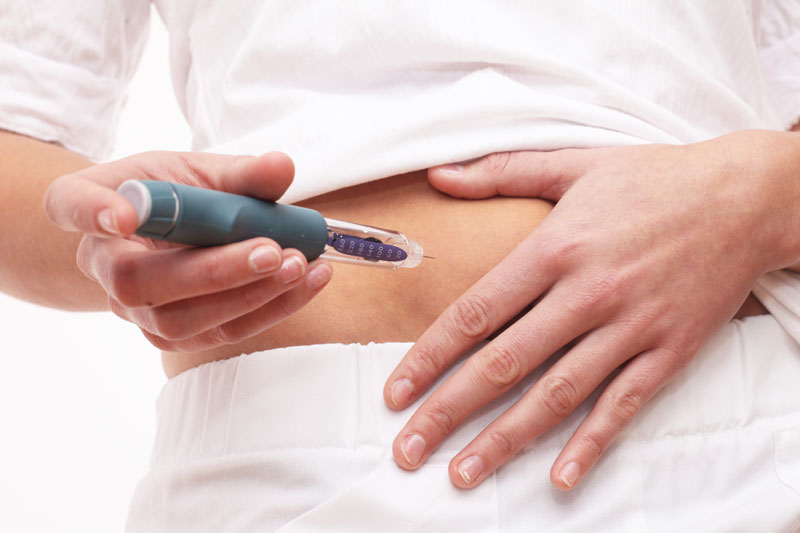Contents:
- Medical Video: Vomiting - Diagnosis, Causes, Symptoms And Treatment Of Vomiting
- What is dry heaving?
- What causes you to vomit, but not?
- 1. Gastric acid
- 2. Take medication
- 3. Is pregnant
- 4. Sports
- 5. Consuming excess alcohol
- Treatment and prevention that can be done at home
- When should you go to the doctor?
Medical Video: Vomiting - Diagnosis, Causes, Symptoms And Treatment Of Vomiting
Have you ever experienced the sensation of vomiting at the end of the throat - the term, already "hoek-hoek" - but nothing has been spit up? In the medical world, the condition of wanting to vomit but no vomit that comes out is called dry heaving. What caused it?
What is dry heaving?
Dry heaving is a sensation of vomiting but is not accompanied by something vomiting. Or in other words, you are compelled to vomit something but there is no vomit coming out.
This sensation begins with a feeling of nausea which stimulates certain brain regions to control vomiting. But even after the sensation of nausea stops, the brain's vomiting center may still be active. This causes a continuation of the contraction of the abdominal muscles that suppresses the diaphragm, causing the airway to close - like a gag reflex really.
The difference is if real vomiting partially removes your stomach contents, then dry heaving does not release any substances. Only the sensation of vomiting.
In addition to the sensation of vomiting, this condition is also often accompanied by dryness in the mouth and throat. Patients also often sweat, the pulse increases, and sometimes dizziness. Other symptoms are feeling restless, bad taste in the mouth, loss of appetite, coughing, choking, and abdominal pain.
What causes you to vomit, but not?
Some conditions can trigger a sensation of vomiting, aka "hoek-hoek", but nothing is vomited. Among others:
1. Gastric acid
Gastric acid or gastroesophageal reflux (GERD) causes symptoms of heartburn. This can cause food to rise from the esophagus or stomach without being accompanied by nausea or very strong contractions of the abdominal muscles. In some people, this condition can trigger a sensation of wanting to vomit, but not really vomiting.
2. Take medication
Some drugs to deal with anxiety and depression can cause nausea and the sensation of vomiting, aka dry heaving. You can consult a doctor if you experience this condition continuously every time you take medication.
3. Is pregnant
Many pregnant women in early pregnancy experience this condition because it is triggered bymorning sickness. This condition usually occurs until the second trimester of pregnancy. In addition, pregnant women tend to be sensitive to smells, so when they smell unpleasant smells they tend to feel like vomiting because of nausea.
4. Sports
Exercising with an intensity that is too high and in a state of fullness or flatulence can cause your diaphragm to contract. For that, avoid eating large before exercising, or wait up to one hour after a big meal to do sports. If during exercise you begin to feel nauseous and want to vomit, take a short break and drink water slowly.
5. Consuming excess alcohol
Eating alcohol excessively can cause you to feel like vomiting. For that, limit the amount of alcohol you consume. If you feel signs of dry heaving, you can neutralize it by chewing on digestible foods such as salted biscuits and drinking water little by little.
Another condition that can cause this to happen is infection and anxiety.
Treatment and prevention that can be done at home
Here are some things you can do to overcome and prevent the sensation of continuing to vomit, namely:
- Avoid excessive consumption of alcohol, caffeine, chocolate.
- Eat rice, bread, or biscuits that are easy to digest if you feel nauseous.
- Rest if you start feeling nauseous when exercising.
- Do not lie down with a full stomach that can facilitate stomach acid rising back into the esophagus.
- Eating bananas as a substitute for rice for snacks before exercise.
- Eating chicken soup and other calorie foods to reduce symptoms.
- Take enough fluids throughout the day.
When should you go to the doctor?
You need to consult your doctor when symptoms don't improve after trying treatment at home and last for a long time. The doctor will examine you to help determine the cause.
Usually doctors will prescribe anti-nausea and antiemetic drugs that work by blocking certain substances in the body that trigger nausea.
You are also advised to go to the doctor if you experience more serious symptoms such as:
- Difficulty breathing
- Muscle ache
- Chest pain that is quite severe
- Painful abdominal pain
- Increased heart rate
- The intensity of urination decreases
- There is blood in the urine
- Bloody vomiting or feces
Prolonged dry heaving requires medical treatment because it can be a sign of intracranial pressure, inflammation of the pancreas, and severe liver and kidney disease.













